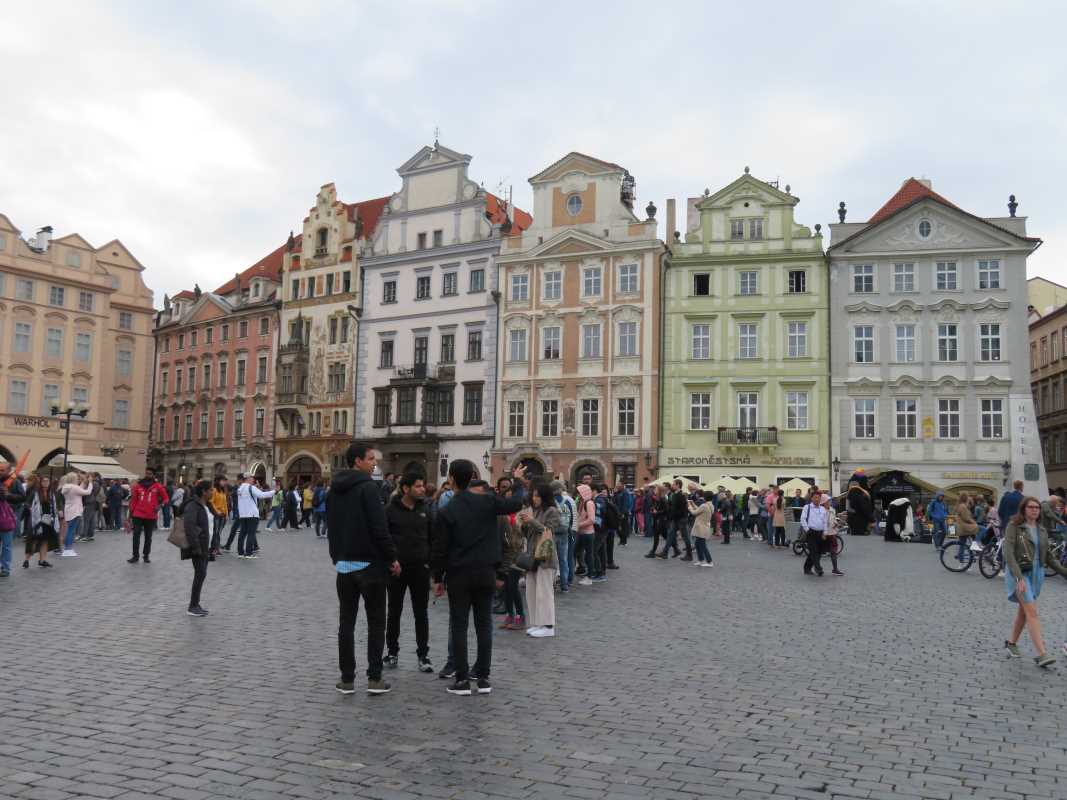Embark on a journey across the United States and discover some of the most iconic tourist attractions this diverse country has to offer. From coast to coast, America boasts a wide range of attractions that cater to every interest, whether you're a history buff, nature lover, or thrill-seeker. This exploration will take you through the nation’s most famous landmarks, each one representing the rich tapestry of American culture, history, and natural beauty.
The Statue of Liberty, New York
Our journey begins in the bustling city of New York, where the Statue of Liberty stands tall as a symbol of freedom and democracy. Located on Liberty Island in New York Harbor, this iconic monument was a gift from France in 1886 and has since become one of the most recognizable symbols of the United States. The statue, officially named "Liberty Enlightening the World," represents the Roman goddess Libertas, who holds a torch above her head and carries a tablet inscribed with the date of the American Declaration of Independence.
Visitors to the Statue of Liberty can explore the museum located in the pedestal, which details the history and symbolism of the statue. For those seeking a bit more adventure, climbing the 354 steps to the crown offers breathtaking views of the New York City skyline and the harbor below. The statue’s sheer size and the intricate details of its construction, including the 7-pointed crown symbolizing the seven seas and continents, make it a must-see attraction for anyone visiting the Big Apple.
Cloud Gate (“The Bean”), Chicago
Heading west to the Windy City, Chicago, the Cloud Gate sculpture, affectionately known as "The Bean," is a must-see attraction in Millennium Park. Designed by Indian-born British artist Anish Kapoor, this unique reflective sculpture has become a beloved symbol of the city. Its mirror-like surface reflects the city’s skyline and clouds above, creating an ever-changing spectacle of light and perspective.
The Bean is composed of 168 stainless steel plates welded together seamlessly, and its elliptical shape and highly polished exterior invite visitors to walk around, under, and through it, exploring its fascinating reflections. The sculpture’s design was inspired by liquid mercury, and its smooth, organic form contrasts beautifully with the sharp angles and towering structures of Chicago’s urban landscape. Whether you're visiting in the bustling summer months or during the quiet, snow-dusted winter, Cloud Gate offers a quintessential Chicago experience.
Everglades National Park, Florida
Traveling down south to the sunny state of Florida, the Everglades National Park stands as a natural wonder that is not to be missed. This vast subtropical wilderness is home to a rich and diverse ecosystem, including rare and endangered species such as the American alligator, West Indian manatee, and the elusive Florida panther. The Everglades cover 1.5 million acres of wetland, making it the largest tropical wilderness of any kind in the U.S.
Visitors can explore the Everglades through a variety of means, including airboat tours that glide across the water’s surface, offering a close-up view of the unique flora and fauna. Hiking trails and ranger-led programs provide opportunities to delve deeper into the park’s natural history. The Everglades are also a critical habitat for numerous bird species, making it a paradise for birdwatchers. The park’s distinct landscape of sawgrass marshes, mangrove forests, and slow-moving rivers is a reminder of the importance of preserving such fragile environments for future generations.
Grand Canyon, Arizona
Venturing to the west coast, the Grand Canyon in Arizona is a breathtaking marvel of nature that leaves visitors in awe of its vast size and spectacular views. Carved by the Colorado River over millions of years, this UNESCO World Heritage Site is approximately 277 miles long, up to 18 miles wide, and over a mile deep. The Grand Canyon is a testament to the power of natural forces and offers a unique glimpse into the geological history of the Earth.
The canyon’s layers of red rock reveal nearly two billion years of Earth’s history, with the oldest exposed rocks dating back to the Precambrian era. Visitors can explore the canyon’s rim on foot via numerous hiking trails, with the South Rim being the most popular due to its accessibility and amenities. For the more adventurous, mule rides and whitewater rafting trips provide thrilling ways to experience the canyon’s depths. Helicopter tours offer a bird’s-eye view of the canyon’s immense scale, allowing visitors to fully appreciate its grandeur.
Space Needle, Seattle
Crossing over to the Pacific Northwest, the Space Needle in Seattle, Washington, offers panoramic views of the city and the surrounding mountains from its observation deck. Built for the 1962 World's Fair, the Space Needle quickly became an iconic symbol of Seattle and remains a popular tourist attraction today. Standing at 605 feet tall, the structure was considered a marvel of engineering at the time, designed to withstand earthquakes and winds up to 200 miles per hour.
The Space Needle’s observation deck, now featuring a rotating glass floor, provides an unparalleled 360-degree view of Seattle, including landmarks such as Mount Rainier, Puget Sound, and the bustling downtown area. The experience of seeing the city from such a height, coupled with the futuristic design of the Space Needle itself, makes for an unforgettable visit. The Space Needle continues to be a symbol of innovation and the forward-thinking spirit of the Pacific Northwest.
Independence Hall, Philadelphia
Our final stop takes us to the historical city of Philadelphia, Pennsylvania, where Independence Hall stands as a symbol of America's independence and democracy. This UNESCO World Heritage Site is where both the Declaration of Independence and the U.S. Constitution were debated and adopted, making it a significant landmark in American history. Completed in 1753, Independence Hall originally served as the Pennsylvania State House and played a central role in the founding of the United States.
Visitors to Independence Hall can take guided tours that provide insight into the debates and decisions that took place within its walls. The Assembly Room, where the Second Continental Congress met, remains preserved as it was during the 18th century, offering a tangible connection to the nation’s founding. Nearby, the Liberty Bell, another iconic symbol of American independence, is housed in its own pavilion, where visitors can learn about its history and the origins of its famous crack. A visit to Independence Hall is not just a journey into America’s past but also a reflection on the enduring principles of freedom and democracy that continue to shape the nation.
Conclusion: A Tapestry of American Experiences
As you plan your next vacation or cross-country road trip, consider adding these must-see tourist attractions to your itinerary for a memorable and enriching travel experience across the United States. Each destination offers a unique glimpse into the culture, history, and natural beauty that make America a diverse and captivating country to explore. From the towering Statue of Liberty to the natural splendor of the Grand Canyon, these landmarks are not just tourist attractions—they are symbols of the American spirit and the stories that have shaped the nation.
The United States is a country of vast landscapes and diverse cultures, and each state offers its own unique attractions and experiences. Whether you’re drawn to the bright lights of the big cities, the tranquility of the great outdoors, or the historical sites that tell the story of a nation, there’s something for everyone in this land of endless possibilities. So get ready to pack your bags and hit the road to discover the wonders that await you across the states!
(Image via Adobe)
 (Image via
(Image via



.jpg)

